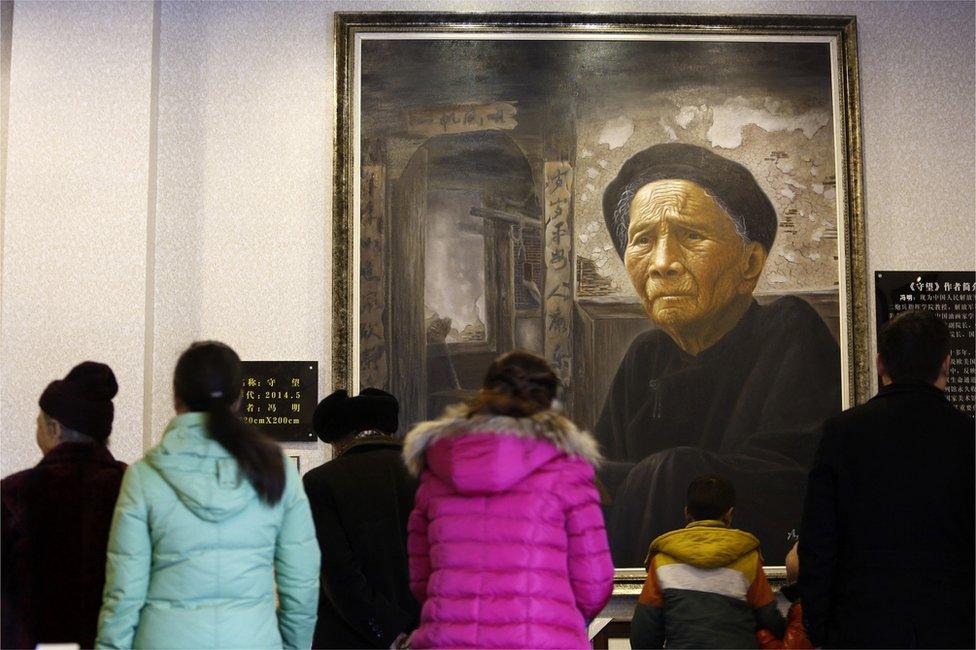China chain imposes 'filial piety tax' on employees
- Published

A museum encouraging filial piety was opened in Sichuan in February
An unusual policy by a company in China where employees are made to give part of their salary to their parents has sparked debate online on filial piety.
The Guangzhou Daily newspaper reported that the company, an unnamed beauty salon chain, wanted to promote good moral values among its employees.
Respect for parents is considered a key value in Chinese society and culture.
But the story, widely carried in local media, has triggered discussion on whether the company has gone too far.
Most Chinese parents expect, by tradition, to receive part of their children's salaries once they start earning a wage.
In 2013, China passed a law aimed at encouraging filial piety, mandating that those who live apart from their elderly parents must visit them frequently.
'Inspiring respect'
The Guangzhou-based chain's spokesman, Lu Meiye, said many of her employees were young, poorly educated people from rural villages.

Filial piety is considered a key value in Chinese society and culture
She said the chain wanted to "inspire filial respect among these employees for their parents, and also help the company maintain its compassion".
Ms Lu said the policy, which has been in place for the past three years, was made clear to every potential recruit. "Those who disagree with it will not be hired," she said.
The average basic salary at the chain is about 3,000 yuan (£309; $472).
The company automatically deducts 10% of single employees' salaries and 5% of married employees' salaries every month and wires the money directly to their parents.
But it also gives compensation to employees, ranging from 100 yuan for those in their first year with the company to 300 yuan for those who have worked three years or more.
The company also holds regular classes for employees where they are taught, among other things, about filial piety.
'Salaries for employees, not parents'
The policy was met with mixed reactions online, with many saying the company was overreaching and meddling.
"Filial piety is filial piety, and salary is salary.... Salaries are for the employees not for their parents. They should just mind their own business," said Wangchuanheshangdeyufu, a user of the Weibo microblog site.

The concept of filial piety was advocated by Chinese philosopher Confucius
"The company's intention is good but its methods are too heavy handed. And filial piety should come naturally from the heart. This isn't quite right," said JiajiaPC.
Some, like JibekeshiHMJ, felt the company was violating employee rights. "It is distorting the meaning of civic duty... It is also imposing itself on private matters between the employee and his or her family," said the user.
But some praised the move, saying that more needed to be done to promote filial piety.
"I support this! These days many young people just want to earn money for themselves and spend it on themselves, very few care for their families," said Aileenxiaodi.
- Published28 September 2015

- Published2 July 2013
